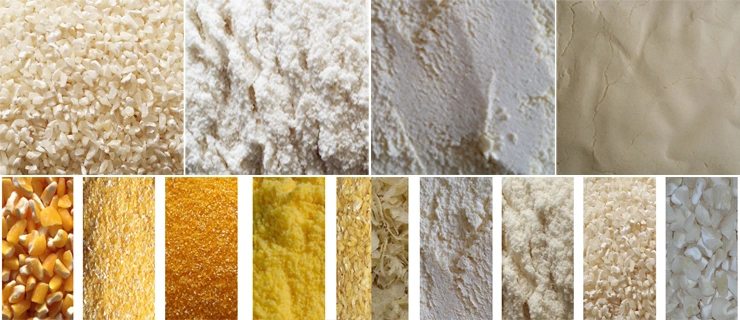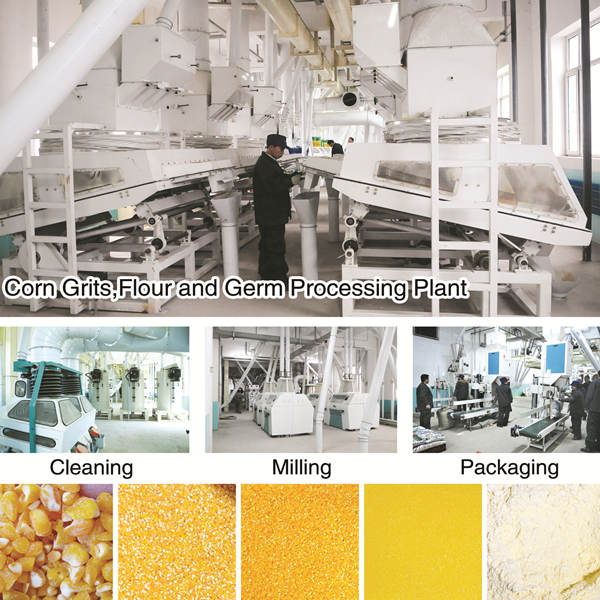What is the supply and demand situation for Corn Flour Mills in Tanzania?
Corn flour mills play a vital role in the agricultural sector of Tanzania, a country with a rapidly growing population and a rising demand for food products. Corn or maize, one of the most important crops in Tanzania, is processed into flour and other value-added products for local consumption and export. In this article, we will explore the supply and demand situation for corn flour mills in Tanzania and how it affects the industry players and the economy as a whole.

1. Overview of the corn flour milling industry in Tanzania
Corn flour milling is a significant sector of the agro-processing industry in Tanzania, contributing to food security and employment opportunities. According to a report by the Tanzania Private Sector Foundation (TPSF), the country has around 35 large-scale corn flour mills and several small and medium-sized mills, producing an estimated 2.4 million tons of maize flour annually. The demand for maize flour in Tanzania is driven by various factors, including population growth, urbanization, and changing consumer preferences.

2. Supply side of the corn flour milling industry
The supply side of the corn flour milling industry is determined by the availability and quality of raw materials, production capacity, and technological efficiency. Maize is the primary raw material used by flour mills in Tanzania, and the country has a decent production of maize, averaging about 6 million tons per year. However, the supply is not always consistent due to seasonal and weather-related variations and occasional pest outbreaks. In addition, most of the maize produced in Tanzania is consumed directly as food, leaving a limited quantity for industrial processing. The production capacity and technological efficiency of flour mills in Tanzania vary, with some mills using outdated machinery and equipment, while others have adopted modernization and automation.
3. Demand side of the corn flour milling industry
The demand side of the corn flour milling industry is driven by the domestic consumption of maize flour and the export opportunities. Tanzanians rely heavily on maize flour for their staple food, with an estimated 90% of households consuming maize flour regularly. The per capita consumption of maize flour in Tanzania is approximately 75kg per year, making it one of the highest in the world. The demand for maize flour is expected to increase further due to population growth, urbanization, and changing diets. According to the National Bureau of Statistics (NBS), Tanzania exported 106.000 tons of maize flour in 2020. mainly to neighboring countries in East and Southern Africa.

4. Challenges faced by corn flour mills in Tanzania
Despite the significant demand for maize flour, the corn flour milling industry in Tanzania faces several challenges, including inadequate raw material supply, high production costs, low-profit margins, and stiff competition. The fluctuation of maize prices and availability affects the profitability of the mills, as the mills need to maintain a balance between the raw material costs and the selling prices. Moreover, outdated machinery and equipment hinder the mills' productivity, quality, and safety standards, making it hard to compete with other producers in the region.
5. The role of WinTone in the corn flour milling industry in Tanzania
As a leading supplier of flour milling machinery and equipment, WinTone has been actively involved in the corn flour milling industry in Tanzania, providing turnkey solutions to mills of all sizes. With its advanced technology and expertise in flour milling, WinTone helps improve the efficiency, productivity, and profitability of the mills, enabling them to meet the growing demand for maize flour in the domestic and regional markets. Moreover, WinTone offers custom-made solutions that suit the specific needs and requirements of each mill, ensuring the production of high-quality maize flour that meets the customers' expectations.
Conclusion
The corn flour milling industry in Tanzania faces several challenges, but the increasing demand for maize flour creates opportunities for the mills to invest in modernization and efficiency. As a reliable partner in the industry, WinTone offers innovative solutions that help the mills overcome the challenges and achieve sustainable growth. By leveraging WinTone's expertise and technology, the corn flour mills in Tanzania can contribute to the country's food security and economic development, while satisfying the consumers' needs and preferences.
Related News:
- Produce Kenya Super Maize Meal 50t/D Maize Milling Machine
- Complete Line 50t/24h Wheat Flour Milling Machines for Sale
- Kenya Zambia 100t/24h Maize Flour Milling Machines
- Maize Flour Making Machine Corn Machine Maize Flour Mill Plant
- 300T Maize Processing Project Built in Jilin Yuquan Miye
- Flour Mill, Corn Maize Flour Milling Machines of Uganda
- Chinese First Grade 150t/24h Maize Flour Processing Machine
- Grainflour Roller Mill for Processing Wheat Corn Maize Flour
- Unlock the Potential of Your Farm with 5t Small Scale Maize Flour Mill by WinTone
- Angola Market Sale 30t Corn/Cassava Flour Milling Machine




